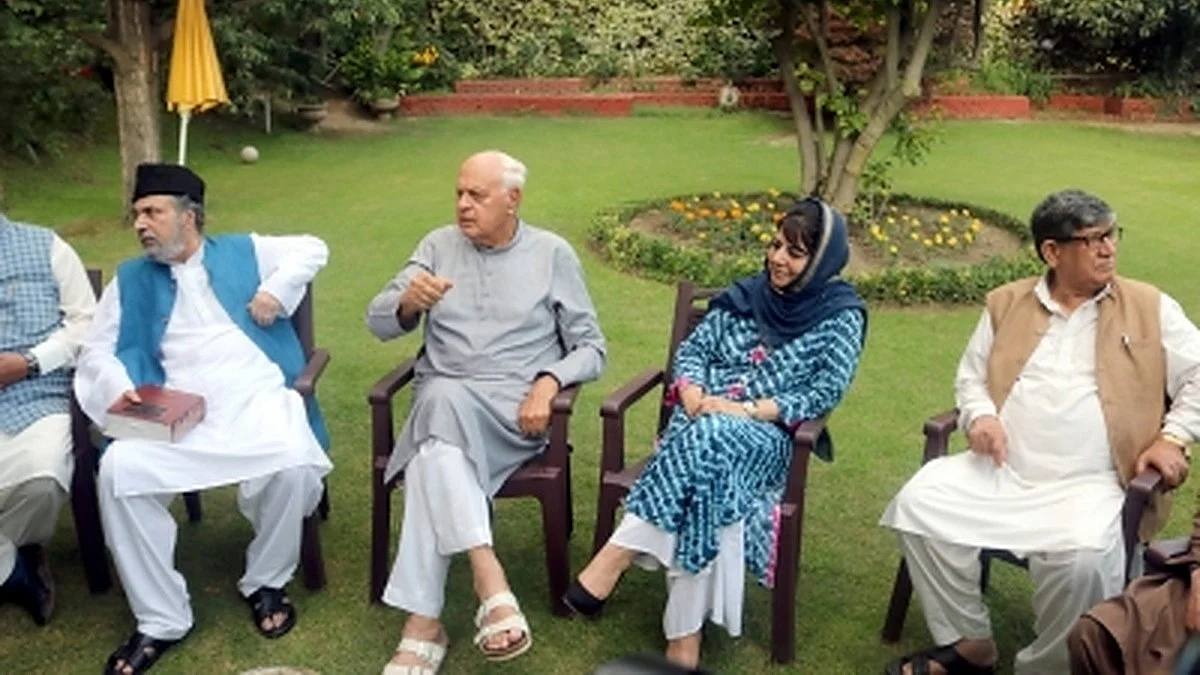Why NC & PDP cling on to the restoration of Article 370
The Gupkar alliance seeks restoration of Article 370 and statehood for J&K as it existed before August 5, 2019

The regional National Conference (NC) and its political rival, the Peoples Democratic Party (PDP), have come together as strange bedfellows to defend Article 370 for more than one political reason.
Sleeping with the enemy for political expediency could not be better understood than by the coming together of the NC and the PDP in the alliance for Gupkar Declaration headed by NC President Farooq Abdullah.
The Gupkar alliance seeks restoration of Article 370 and statehood for J&K as it existed before August 5, 2019.
The PDP came into existence in 1999 on the premise that the people needed a regional mainstream alternative to the hereditary rule of the NC.
Not one manifesto point of PDP’s electoral campaign said anything remotely good about the NC.
NC had got the autonomy resolution passed by the state Assembly and later the same was sent to Delhi where it found no takers.
The PDP, in its game of one-upmanship on the NC, came out with the idea of self-rule. Both autonomy and self-rule had different names, but the same inherent spirit to preserve the unique position of J&K in the Indian union as guaranteed by Article 370.
Politically, both autonomy and self-rule were intended by the two local mainstream parties to present an achievable alternative to the separatists’ clamour for secession from India.
Without agreeing that the two were carved out with one singular intent to get local public support in strife torn Valley, both NC and the PDP called their formula as ‘seeking a respectable place under the Indian sun’.
While Delhi did not find anything that could be discussed with the state government with regard to the autonomy resolution, PDP’s self-rule formula was not treated very differently by the central government.
Still then, for both the NC and the PDP to remain politically relevant among the people of Kashmir, drumming the slogans of self-rule and autonomy were largely part of political survival for the two parties.
The strategy of seeking votes in elections while holding tight to their demand for self-rule and autonomy stood both the PDP and the NC in good stead till Delhi decided to do away with Article 370.
When Article 370 was abrogated on August 5, 2019, the NC and the PDP were politically dumbfounded.
While the separatists demanded secession and the two mainstream parties demanded more concessions under self-rule and autonomy, the ground under their feet had started shaking dangerously.
Delhi had taken away what remained with J&K by abrogating Article 370 as a distinction with other states in the union.
If there was any peculiarity in the state’s accession with India with regard to other states, on August 5, 2019 that had vanished. The NC and the PDP had little choice than seek restoration of Article 370 if these two parties wanted to remain locally relevant.
If the NC and the PDP behaved like the centrist BJP that stood for abrogation and the Congress that did not oppose the abrogation, then they would have lost their raison d’etre as local mainstream parties.
In a nutshell, seeking restoration of Article 370 after the NC and the PDP lost on their demands of autonomy and self-rule is like clinging to the straw.
How long can they remain afloat with the slogan seeking restoration of Article 370 would depend on the outcome of the constitutional issue being heard by the five-member bench of the Supreme Court.
Follow us on: Facebook, Twitter, Google News, Instagram
Join our official telegram channel (@nationalherald) and stay updated with the latest headlines
Published: 13 Aug 2023, 12:02 PM
